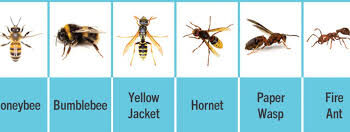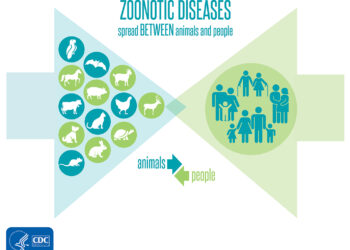Tips for Properly Storing Food to Prevent Pest Infestations in Your Home
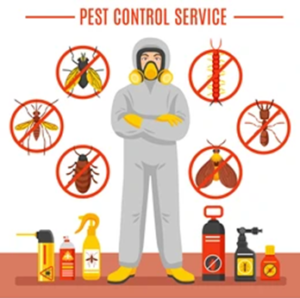
Proper food storage is essential in preventing pest infestations in the home. Pests such as rodents, insects, and other vermin are attracted to food that is left out or improperly stored. Not only can pests be a nuisance, but they can also cause health risks, contaminating food with bacteria and other harmful pathogens.
To prevent pest infestations, it is important to store food correctly. This article will outline some tips for storing food to prevent pests, including proper storage containers, storage locations, and cleaning and maintenance.
Storage Containers. One of the most important factors in preventing pest infestations is choosing the right storage containers for your food. Containers should be airtight and made of materials that pests cannot chew through, such as glass, metal, or hard plastic. Avoid using paper or cardboard containers, as pests can easily chew through them to access the food inside.
When choosing storage containers, be sure to select sizes appropriate for the amount of food you will be storing. Overfilled containers can create small gaps where pests can enter, while underfilled containers can allow air and moisture to enter, creating conditions that attract pests.It is also important to label all containers with the contents and the date they were stored. This will help you keep track of what you have and when it needs to be used or disposed of Storage Locations.
In addition to using the right storage containers, it is important to choose the right storage locations. Food should be stored in cool, dry places that are free from pests. Avoid storing food in areas that are warm or humid, such as near appliances or in damp basements.
Cabinets and pantries should be clean and dry before storing food. Be sure to remove any crumbs or spills and vacuum or sweep the area before storing food. This will help eliminate any food sources that might attract pests.Food should also be stored off the floor, preferably on shelves or in cabinets. This will help prevent pests from accessing the food and creating hiding places for themselves.
Cleaning and Maintenance: Proper cleaning and maintenance of storage containers and storage locations is crucial in preventing pest infestations. Containers should be washed with warm soapy water and rinsed thoroughly before and after each use. Be sure to dry them completely before storing food. Storage locations should be cleaned regularly to remove any crumbs, spills, or other food debris that might attract pests. Vacuum or sweep the area regularly, and wipe down shelves and cabinets with a damp cloth to remove any dust or dirt.
It is also important to inspect food regularly for signs of pest infestations. Look for signs of gnawing or chewing on containers or packaging, as well as droppings or other signs of pests. If you suspect a pest infestation, dispose of any contaminated food and clean the storage area thoroughly before restocking.

Here are some additional tips to help prevent pest infestations:
- Store food in the refrigerator or freezer whenever possible. This will help keep food fresh longer and prevent pests from accessing it.
- Use sealed containers to store pet food, birdseed, and other pet or animal products. Pests are attracted to these products and can easily access them if they are not properly stored.
- Dispose of food waste properly. Use a covered trash can and dispose of food waste regularly to prevent odors that can attract pests.
- Keep outdoor trash cans and compost bins away from the house. Pests are attracted to the smells of trash and compost, so be sure to keep these containers away from doors and windows.
- Seal any cracks or gaps in walls, floors, or cabinets. Pests can enter the home through even the smallest openings, so be sure to seal any potential entry points.
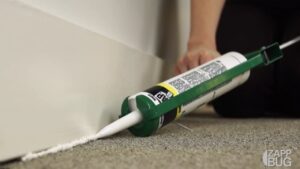
Proper food storage is an essential part of maintaining a healthy, pest-free home. By following the tips outlined in this article, you can reduce the risk of pest infestations and keep your food fresh and safe to eat. Remember to choose the right storage containers and locations, clean and maintain storage areas regularly, and be proactive in preventing pest infestations. With these simple steps, you can enjoy a pest-free home and a healthy, happy family.
It is important to note that different types of food require different storage conditions. For example, fruits and vegetables should be stored in a cool, dry place, but not in the refrigerator. On the other hand, meats and dairy products should be stored in the refrigerator to prevent spoilage and the growth of harmful bacteria. Be sure to follow recommended storage guidelines for each type of food to ensure maximum freshness and safety.
Conclusion:
Proper food storage is essential in preventing pest infestations in the home. By using the right storage containers, choosing the right storage locations, and cleaning and maintaining storage areas, you can reduce the risk of pest infestations in your home. Remember to use airtight containers made of materials that pests cannot chew through, store food in cool, dry places away from pests, and clean and maintain storage areas regularly.
By following these tips, you can help keep your home free from pests and reduce the risk of contamination from harmful bacteria and other pathogens. In addition, proper food storage can help extend the shelf life of your food, reducing waste and saving you money in the long run.
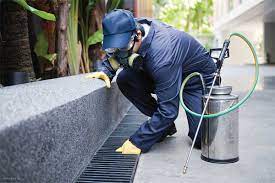
It is important to be proactive in preventing pest infestations, as once pests have established themselves in the home, it can be difficult and expensive to get rid of them. By taking steps to prevent pests from entering your home in the first place, you can save yourself a lot of time, money, and stress.
If you do notice signs of pest infestation, such as droppings, gnawing, or other evidence of pests, it is important to take action immediately. Dispose of any contaminated food, clean and disinfect the storage area, and consider contacting a pest control professional for assistance.




